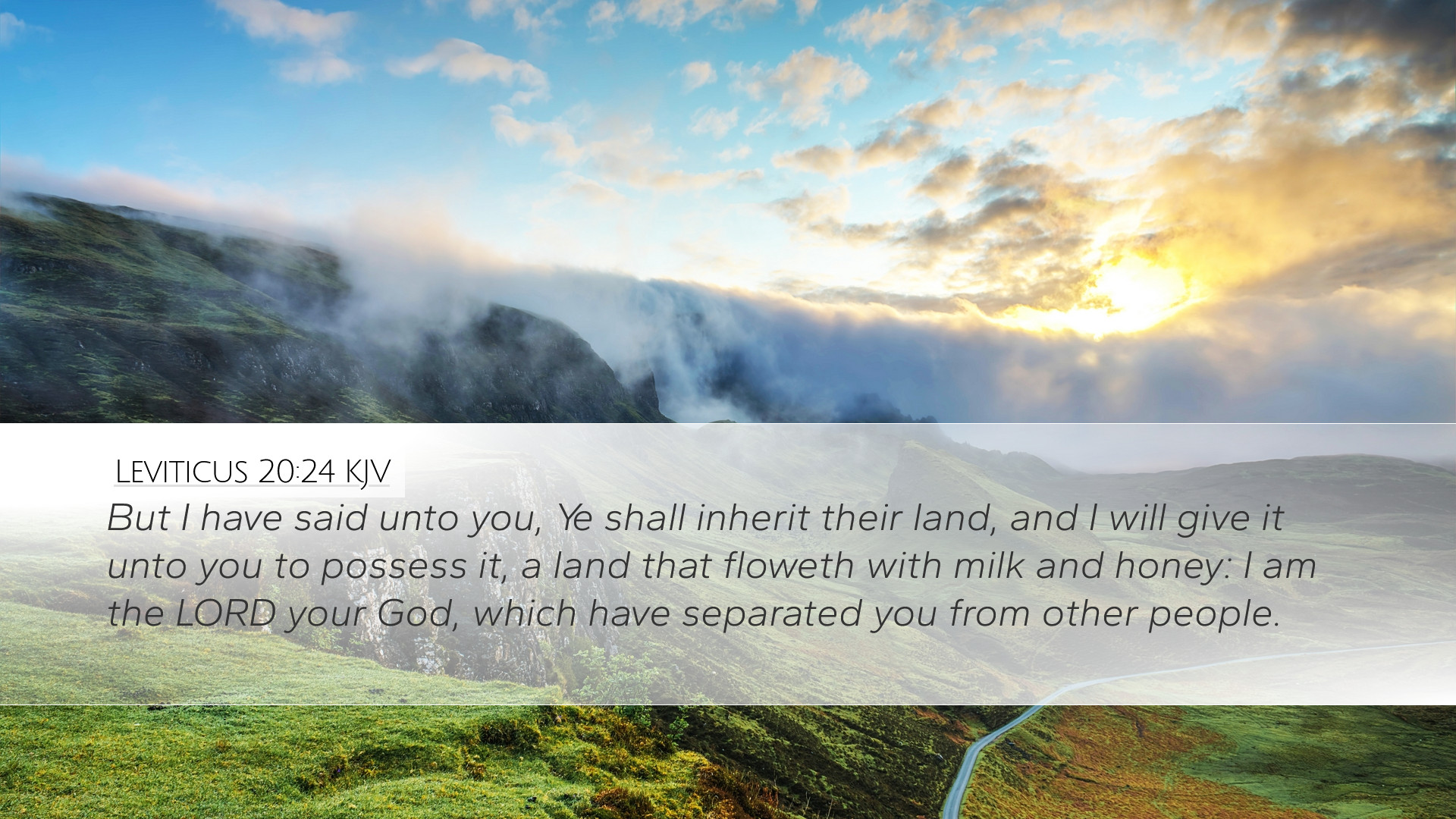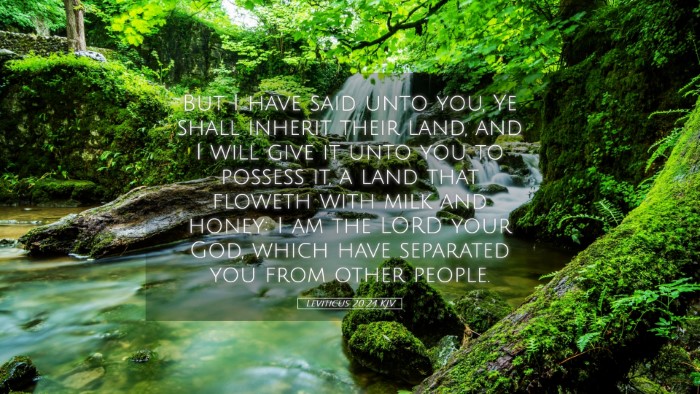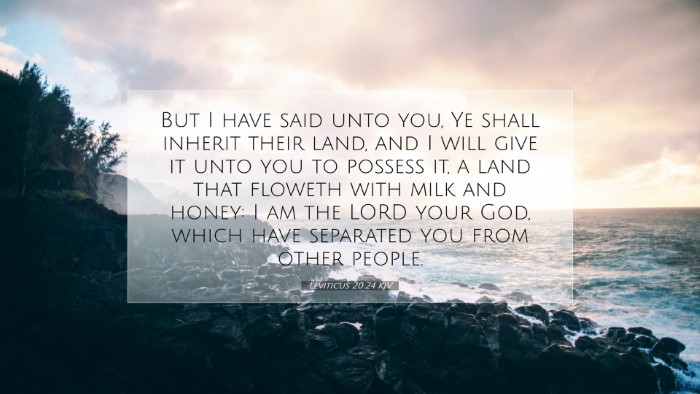Commentary on Leviticus 20:24
Verse Text: "But I have said unto you, Ye shall inherit their land, and I will give it unto you to possess it, a land that floweth with milk and honey: I am the Lord your God, which have separated you from other people."
Introduction
Leviticus 20:24 serves as a profound declaration of God's covenantal promise to His people, emphasizing the theme of separation and inheritance. This verse encapsulates a significant theological foundation concerning God's intention for Israel as His chosen people in the Promised Land. In examining this verse, we draw insights from the esteemed public domain commentaries including those of Matthew Henry, Albert Barnes, and Adam Clarke.
Theological Significance
At its core, Leviticus 20:24 reveals the holiness of God and His desire for His people to be set apart. This notion of holiness and separation is crucial for understanding the subsequent laws and regulations given in the Mosaic Law.
-
Holy People: According to Matthew Henry, the Lord's command to be a distinct people emphasizes that the Israelites are to reflect God's holiness in all aspects of their lives. This spiritual separation was not for elitism but for the promotion of the divine character through obedience to God’s laws.
-
Chosen Status: Albert Barnes notes that God’s declaration of Israel as His people carries immense weight as it highlights God's sovereign choice in electing Israel for inheritance. This election sets the stage for their unique relationship with God and His promises.
-
The Promised Land: Adam Clarke elaborates on the land flowing with milk and honey, denoting abundance and fertility. This metaphorical language underscores the physical and spiritual blessings awaiting the faithful as a demonstration of God’s providence.
Contextual Background
To fully grasp the weight of Leviticus 20:24, one must consider its placement within the broader narrative of the Pentateuch. The Israelites had recently received extensive laws and guidelines that were meant to govern their community life and maintain their covenant fidelity.
Historical Context: The Israelites were on the brink of entering the Promised Land after generations of slavery in Egypt and years of wandering in the wilderness. This declaration serves as assurance from God that their suffering was not in vain; they were about to receive the land as part of His covenant.
Implications for Israel
The implications of this verse for Israel are profound. It establishes an expectation of obedience and a prescribed way of life that aligns with the nature of God. The inheritance described carries both physical and spiritual dimensions:
-
Responsibility: With the promise of land comes the responsibility to uphold God’s statutes. As Matthew Henry states, God’s gifts are not without conditions; His blessings require a submission to His sovereign will.
-
Identity: Being a distinct people, as the Lord mentions, requires living out an identity that is reflective of their covenant relationship with God, distinguishing them from surrounding nations (Albert Barnes).
Modern Application
For contemporary believers, Leviticus 20:24 can serve as a reminder of the eternal truth of God’s desire for His people to be separate yet blessed. As followers of Christ, who fulfills the Law, we are called to reflect a holy lifestyle that demonstrates our relationship with God.
-
Separation in Holiness: Just as Israel was called to be a separate nation, Christians are called to live distinctly in a world that may not align with God’s principles (Adam Clarke). Our ethics, values, and interactions should testify to our identity in Christ.
-
Inheritance: The New Testament speaks of a spiritual inheritance (Ephesians 1:11). Believers today can claim the promises of God, recognizing that, like ancient Israel, we have been set apart for purpose and blessing.
Conclusion
Leviticus 20:24 encapsulates the essence of God's covenant with Israel, speaking to themes of inheritance, identity, and holiness. Both ancient Israel and modern believers are called to embrace their unique position as chosen people, reflecting the character of God in a world that needs His light. Through careful study of this verse, guided by the insights of biblical scholars, we find a profound encouragement to live as heirs of God's promises, set apart for His glory.


